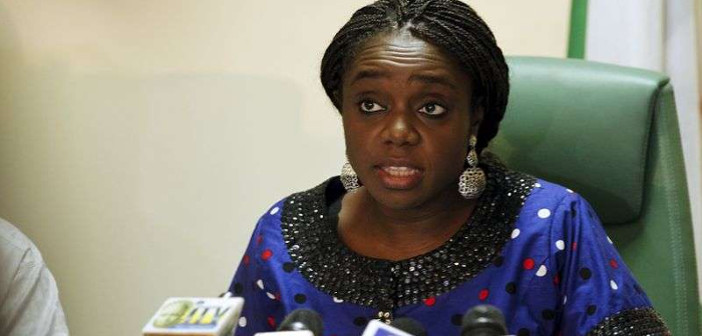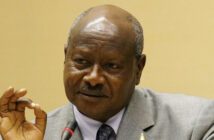The much-anticipated and talked about $300 million Diaspora Bond will be rolled out in March. The Minister of Finance, Kemi Adeosun, disclosed this at a meeting with Hon. Abike Dabiri-Erewa, the Senior Special Assistant to the President on Foreign Affairs and Diaspora, in Abuja.
Mrs. Adeosun also announced the introduction of the Family Home Fund, an affordable housing programme, which Nigerians in the Diaspora can benefit from.
On the Diaspora bond, the Minister said the $300 million was approved by the National Assembly in 2016. She said: “The Diaspora bond, which the National Assembly has approved, where Nigerians in the Diaspora who want to invest can key into, we are hoping that by March, the diaspora bond will be rolled out.
“Beyond that of course, the investment opportunities in Nigeria are very huge.
“A lot of those in the Diaspora who are interested in investing at home are encouraged to do so. “Government is putting in place a lot of incentives such as infrastructures and also creates conducive environment for them to thrive.
“We are encouraging them to come back home and join the trend. “One of the initiatives of the Ministry of Finance is the Family Home Funds, which has two aspects that provide funds for development of housing.
“So we are funding mass housing development, such as 400, 1000 housing units at a time. “We are also providing funding for our people where they can purchase houses.”
The Minister said that the pilot schemes had started in five states, including Anambra, Nasarawa, Delta and Ogun, with private developers already on site.
Adeosun said that the houses, when completed, will be affordable as a unit and will not be more than N15 million, while the lowest will be N7.5 million, with all the infrastructure and necessary government documents in place.
Adeosun advised Nigerians in the Diaspora that investing in the housing scheme is better as it would make them landlords as well as support their families back home to own a home rather than remaining tenants.
“Government is putting in place a lot of incentives such as infrastructures and also creates conducive environment for them to thrive, we are encouraging them to come back home and join the trend,” she said.
Dabiri-Erewa had earlier said there was the need to engage the Diaspora to contribute their quotas to the development of the country.
According to her, Nigerians in the Diaspora deserve to be engaged and be part of the government’s policies and programmes. She noted with pleasure that the remittances from the Nigerians in the diaspora to the economy rose from $21 billion in 2015 to $35 billion in 2016.
Dabiri-Erewa said the Diaspora needed to be encouraged to invest more at home. She stressed on the need to actively involve the Diaspora in the bond, which she said they were eagerly waiting for its take-off.
The presidential aide urged the minister to carry along the Nigerians in the Diaspora in the enlightenment campaign and other road shows on the Diaspora bond.
“Because the bond is an emotional thing on contributing to one’s country and investing in it, we will want to know when it will be a reality,” she said.
Dabiri-Erewa expressed optimism that Nigerians in the Diaspora can serve as catalyst in solving the current economic recession in Nigeria if their potentials are well-tapped.
Dabiri-Erewa said Nigerians in the Diaspora, estimated at over 15 million all over the world, are performing wonders in helping other country’s economy.
He said: “Beyond the remittances, Nigerians in the Diaspora deserve to be engaged in the country to contribute their quota to the development of the country.
“When the Irish were in recession, they invited their Diaspora who helped them fix their economy. “We can do same here.
“For instance, with the passage of the Diaspora Bond by the National Assembly, the Nigerians in the Diaspora would like to know when it will be floated as they are excited about it.”




